IN any discussion regarding the crowning of the leading Japanese Horse, the exploits of Loves Only You will naturally be spoken of. The Yoshito Yahagi-trained mare has enjoyed a sensational year of globetrotting.
The daughter of Deep Impact has won three Group 1 races including a first Breeders’ Cup win for a Japanese-trained horse.
As an ambassador for Japan, Japanese racing, and Japanese breeding, she is the clear pick to be given the much-coveted accolade.
However, all her three Group 1 triumphs came at international venues, Loves Only You has not won a Group 1 in the JRA since the Yushun Himba (Japanese Oaks) in 2019.
There is precedence for a Japanese-trained horse campaigned overseas to be crowned a champion in Japan. El Condor Pasa raced exclusively in Europe and was named Champion Older Horse in the JRA in 1999.
Domestic racing has been spoiled in recent years by a steady procession of individual brilliance on the track.
Dominance by horses such as Almond Eye, Lys Gracieux, Kitasan Black and Maurice made the recipients of the end-of-year champion titles blatantly obvious from early in the season.
Other contenders this year include dual Group 1 winners Gran Alegria and three-year-old Efforia. If the latter were to win the Arima Kinen (December 26th), he would be a worthy winner of the overall title as well as the three-year-old champion.
Classics
On the early classic scene, the white filly Sodashi was never far from the headlines, winning the Oka Sho (Japanese 1000 Guineas) and beating Loves Only You in August in the Group 2 Sapporo Kinen.
Efforia was the outstanding colt but lost the Tokyo Yushun (Japanese Derby) by a nose to Shahryar.
Circle Of Life has sealed her two-year-old fillies’ crown with her win in the Hanshin’s juvenile Group 1 event two weeks ago while Do Deuce took the Ashahi Hai Futurity Stakes last Sunday.
Votes for the remainder of categories are cast by racing journalists at the end of December.
French-born jockey Christophe Lemaire has all but sealed a fourth consecutive jockey’s championship in Japan. Currently on 193 winners, a 57-winner lead over Yuga Kawada in second with three weekends of racing remaining in the season.
Record
In 2018, Lemaire set the record for the most winners ridden in a calendar year with 215 wins.
At the time of writing, Lemaire is operating at 25% winners to rides and 52% top three finishers to rides.
While the jockeys’ race is essentially over the trainer’s equivalent is still very much in the balance.
Mitsumasa Nakauchida has trained 53 winners for the season, giving him a a two-point lead over Yoshito Yahagi.
WITH the quantity and quality that the Shadai Corporation possess in their broodmare band, Shadai’s support can decide the result of the first-season sires’ table. Drefong covered 207 mares in his first year at stud.
While a win for any first-season sire in any of the upcoming juvenile Group 1 races would change the standings significantly. Drefong currently sits well on top of the rankings with 26 winners from 83 runners and a €450,000 lead over second place.
Drefong originally stood for a fee of €23,000. The son of Gio Ponti has had his fee increased to €57,000 for next year.
The Shadai Stallion Station resident’s most valuable juvenile, in terms of earnings, is the Group 3 winner Geoglyph.
He contested the Group 1 Futurity Stakes last week but finished fifth of the 15 behind Do Deuce.
While the American import has lived up to expectations, the relatively unknown Silver State has made the most impressive start of any freshmen sire this year.
Silver State was forced to retire to stud through injury after winning four of his five career starts.
The son of Deep Impact went to Yushun Stallion Station and stood for €11,000 in his first year. Although covering an impressive book of 191 mares, the quality would be vastly inferior to those serviced by Drefong.
Silver State has already produced a Group 3 winner and two other stakes winners. He has sired 20 winners from 72 starters to date, his daughter Water Navillera finished an encouraging third in the Group 1 Juvenile Fillies, and he has had his fee increased to €40,000 for 2022.
Kitasan Black has made a noteworthy start with his first runners.
While not returning the volume of winners as Drefong and Silver State, he has had some eye-catching performers on the track, with 14 winners from 38 runners.
Kitasan Black did not debut until a three-year-old, and he was not seen at his prime until an older horse.
Resembling their sire, tall, angular, backward types were common characteristics with many of his yearlings presented at public auction.
Unbeaten Group 2 winner, Equinox, looks like a two-year-old of the highest quality and one of the most exciting prospects if he is to improve with time as his sire did.
TETSUYA Kimura is a JRA licenced trainer, consistently in the top 20 trainers for the last five years. In June 2020, apprentice Kaito Otsuka, made a complaint of power harassment against Kimura to the JRA.
In January 2021, Otsuka filed a report with the police. He claimed that he was a victim of harassment from the trainer and was seeking €65,000 in damages.
Despite filing for a dismissal, Kimura was found guilty and was fined €800 by the courts.
In a peculiar turn, despite the original complaint made by Otsuka two years prior, two days after the court’s decision the JRA chose to suspend Kimura from training for three months.
A €6,000 settlement was agreed between the two parties. Otsuka donated the sum to charity. Kimura resumed his training career on November 1st by issuing a public apology.
The 49-year-old trainer has saddled 27 winners in 2021 and currently sits in 29th on the trainer’s table.
While still licenced as a jockey in the JRA, Otsuka has not ridden under rules this year as he continues to recover from a racecourse injury.
Sugai sues for ‘harsh’ penalty
AS part of ongoing efforts to curb the spread of Covid-19, the JRA has implemented several restrictions on race-day operations.
While the limits on crowd numbers have eased slowly, restrictions are still heavily enforced in JRA facilities.
One such precaution was that trainers were only permitted to take photos with their winning connections in Group 1 winners’ ceremonies only.
In October 2020, 55-year-old veteran trainer Naosuke Sugai was pictured with both the owners and jockey of Stella Veloce when he won the Group 3 Saudi Arabia Royal Cup.
In his defence, Sugai stated that he misunderstood and believed all group races were exempt from this restriction. The JRA reprimanded Sugai by reducing his maximum stable allowance from 30 to 28.
JRA trainers are limited to the number of boxes they have in the JRA training centres of Miho and Ritto. Trainers almost circumvent this limitation by using pre-training facilities to train while using their box allocation for horses with immediate entries.
In September 2021, Sugai initiated legal proceedings against the JRA for what he believes as a ‘harsh and unreasonable punishment’. He is also seeking compensation of €55,000. The Japanese Trainer’s Association has expressed their support of Sugai’s pending lawsuit.
A NOTICEABLE trend in recent years has been Japanese owners’ willingness to travel to overseas bloodstock auctions. The level of spending on foreign stock reached almost frenzied levels by breeders in 2021.
It is borne from a need to acquire mares that represent different lines to the dominant Sunday Silence one in Japan.
The insatiable appetite for top-class broodmares and fillies was seen at all major sales in America, Europe and Australia.
A perfect example of the Japanese interests flexing their budgets was Fasig-Tipton’s November Sale where Japanese buyers were responsible for $35 million worth of purchases, 33% of the gross sale turnover.
Leading breeder Katsumi Yoshida and his Northern Farm operation has spent over €55 million at Fasig-Tipton since 2010.
Bloodstock with the value of €10.5 million was knocked down to Yoshida at the November Sale this year.
Results of this shift in focus to importation are already becoming evident on Japanese racecourses.
Over half of Group 1 races in Japan this year have been won by horses either by international sires or progeny of imported mares.
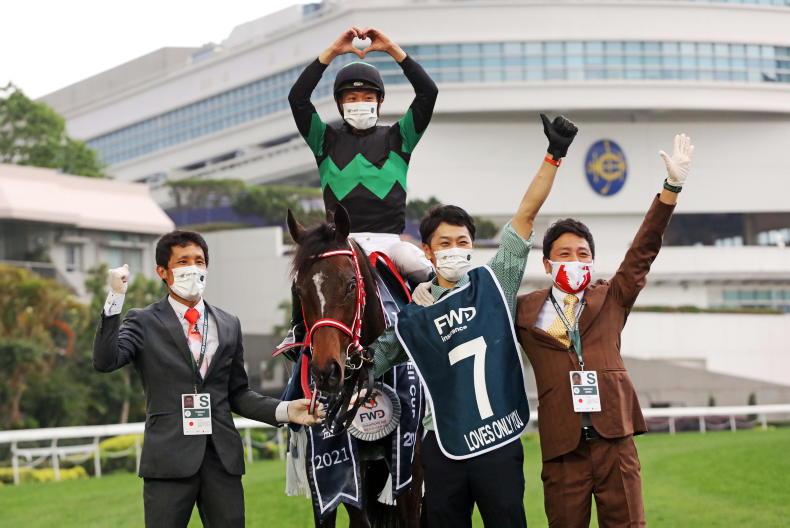

 This is a subscriber-only article
This is a subscriber-only article
 It looks like you're browsing in private mode
It looks like you're browsing in private mode




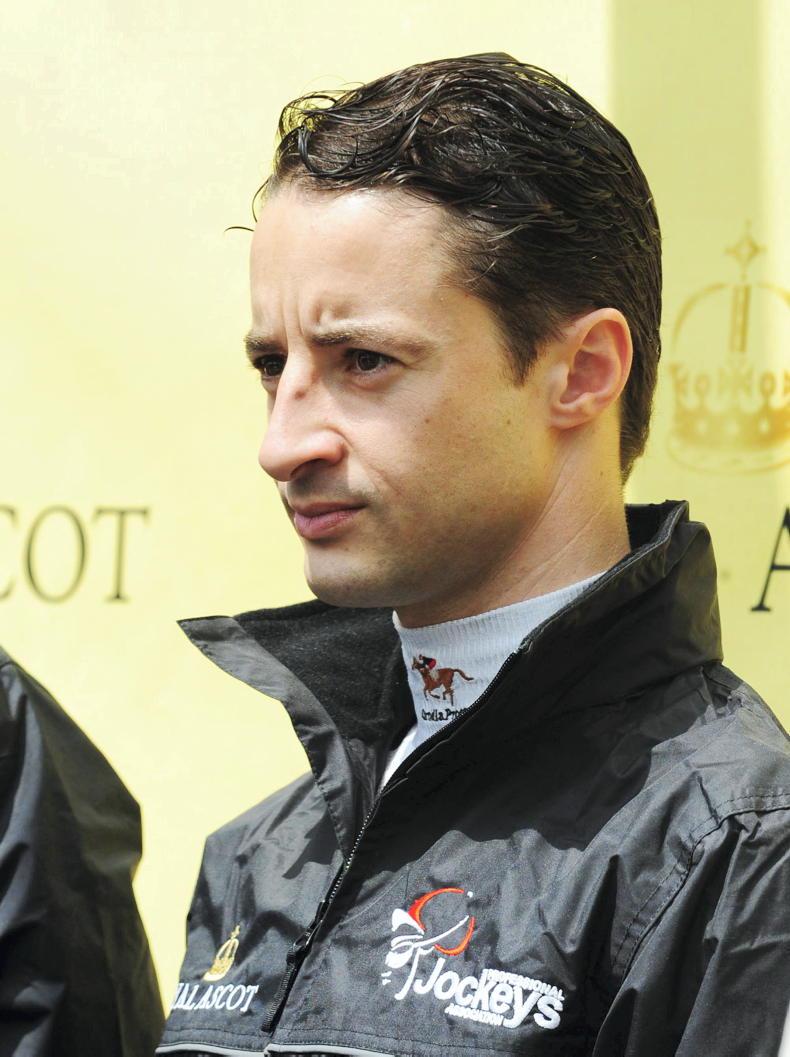
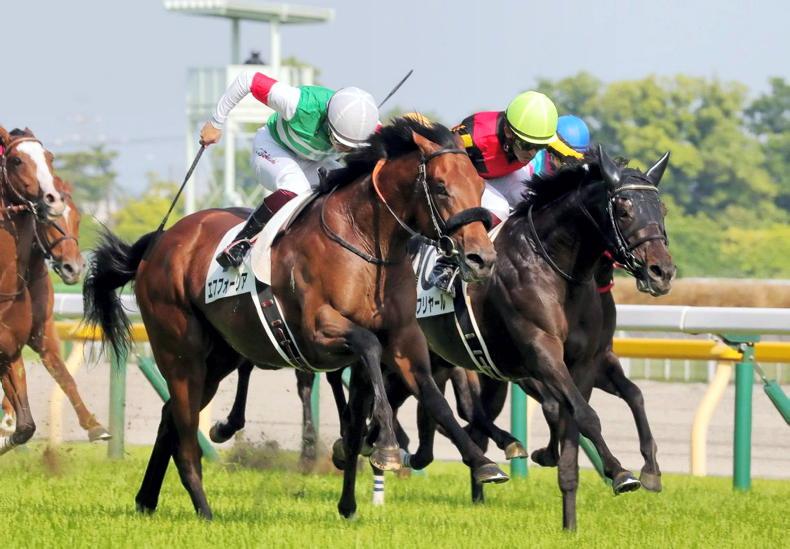
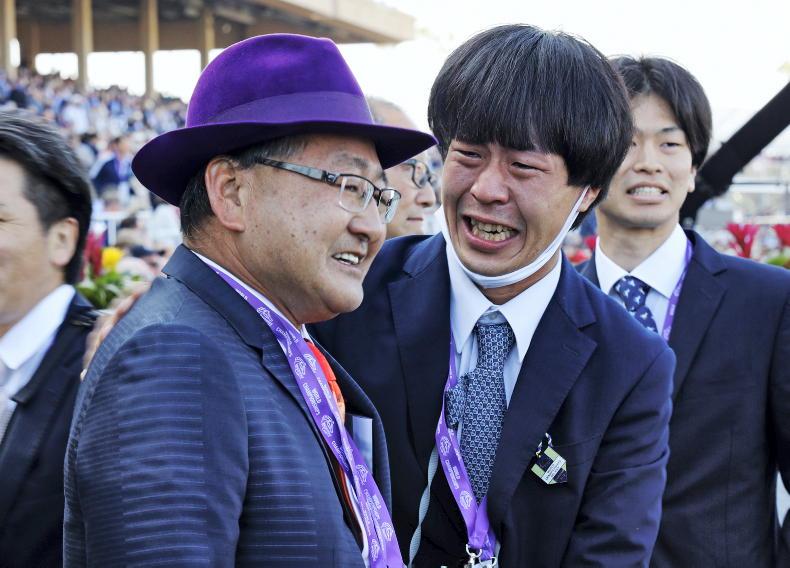
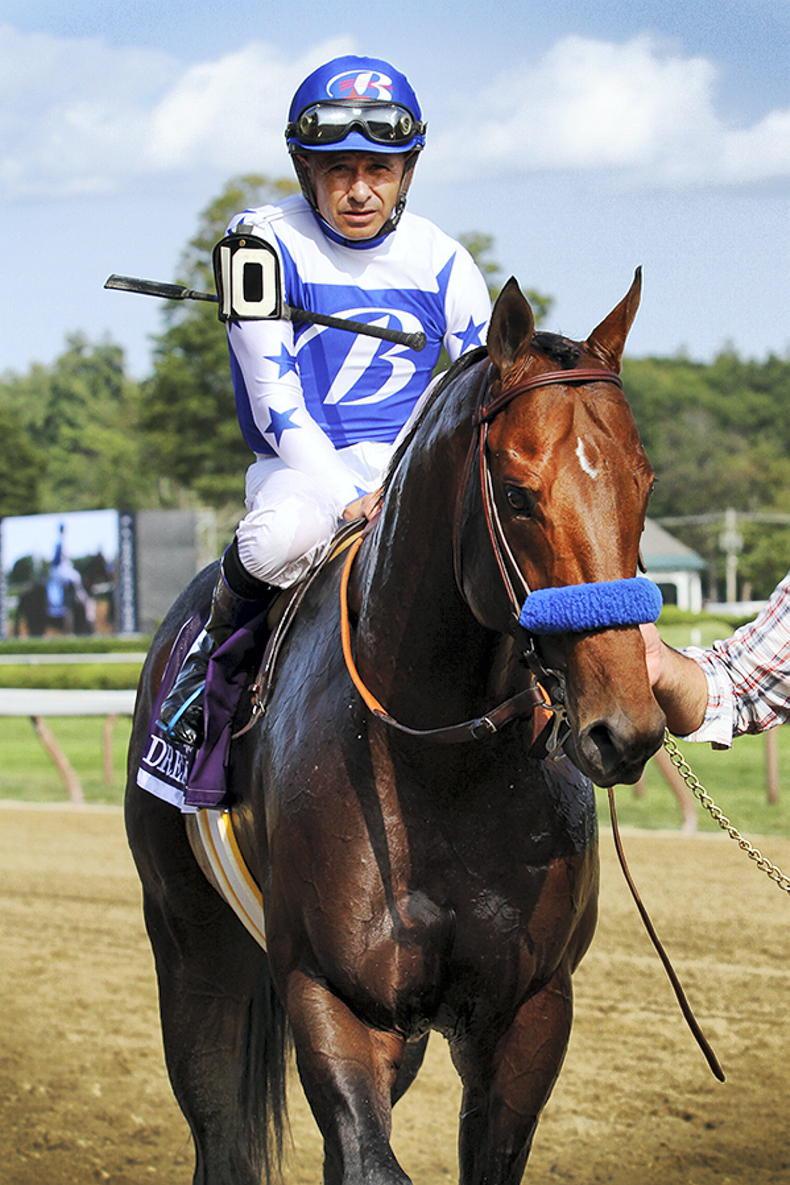

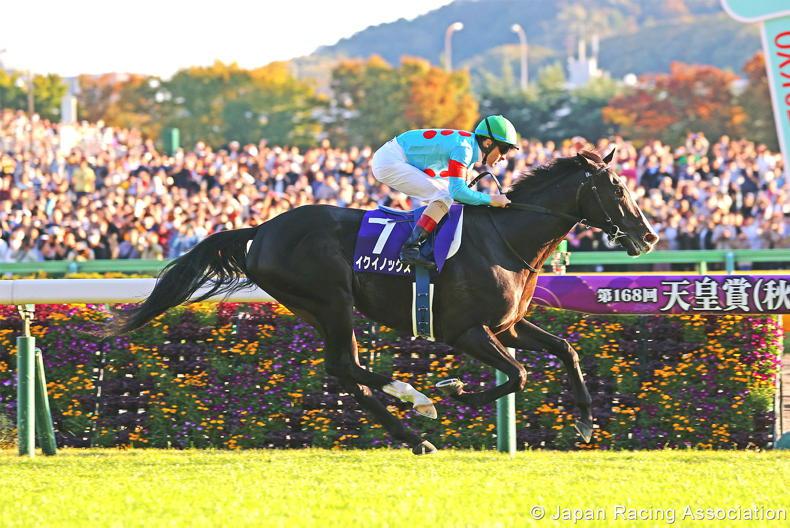
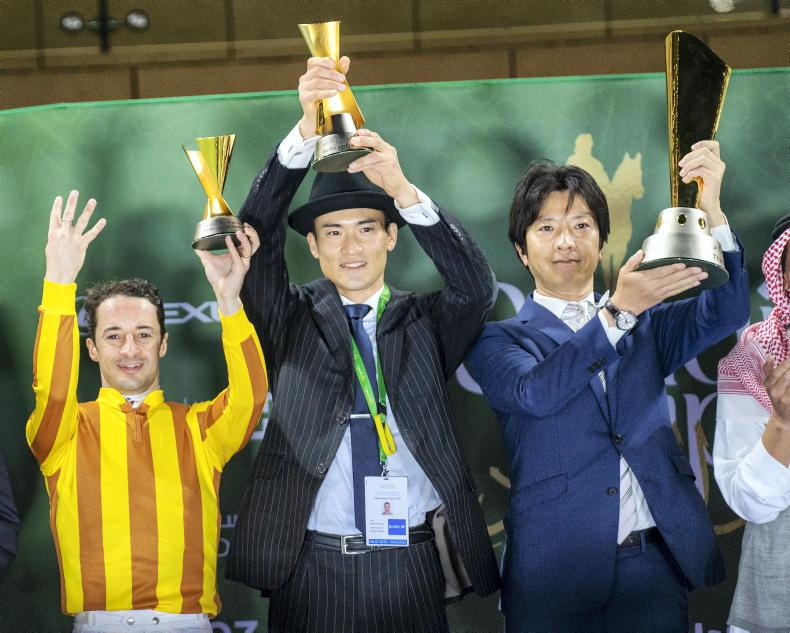

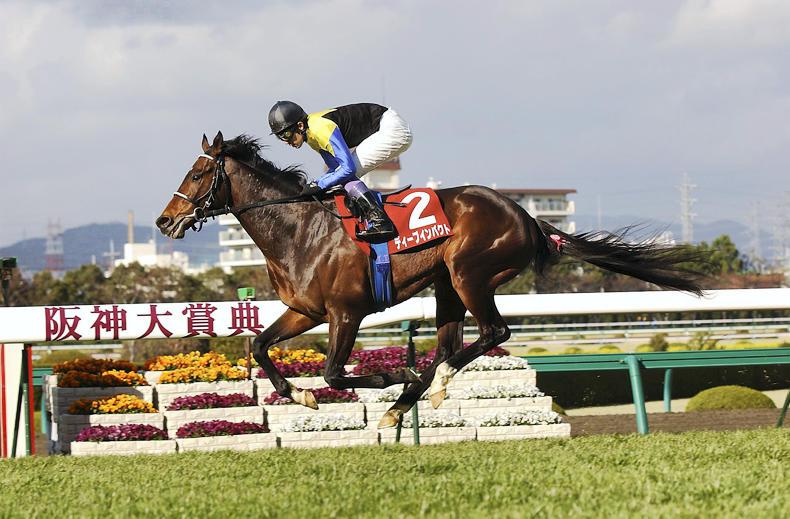

SHARING OPTIONS: